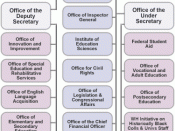Crossing the Line Desperate times call for desperate measures. This seems to be the case in the government's effort to try to put an end to the war on drugs. The government has decided to curtail the use of drugs by implementing harsher penalties, but have they crossed the line and gone too far? Students across the country are finding out that one minor drug conviction will make them ineligible to receive federal aid for at least one year. This is because Congress passed the Higher Education Amendments of 1998, which included new eligibility provisions. Under these new provisions, convicted murderers and rapists can pursue a higher education with financial assistance from the government, but someone convicted of a minor drug offense can't receive a dime to help pay for college tuition. That doesn't seem to make much sense. The very nature of the Higher Education Act of 1998 is unfair and bias; therefore, it should be repealed.
The intentions of the new law are being misinterpreted, which result in unjust punishments that hurt most of the people the law was designed to help.
The Higher Education Amendments of 1998 contain new student eligibility conditions for those trying to obtain federal aid from the government. It provides that a student is ineligible for federal assistance if convicted, under state or federal law, of any offense involving the possession or sale of a controlled substance. The period of ineligibility begins on the date of the conviction and lasts until the end of the specified period. The length of the suspension depends on the severity of the offense. Under the current law, which took effect on July 1, 2000, students convicted of drug possession would be denied aid eligibility for one year from the time of conviction for a first offense, two...


